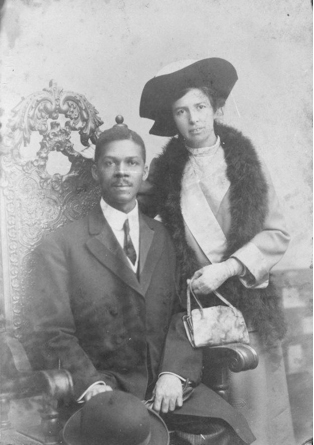The views expressed in our content reflect individual perspectives and do not represent the authoritative views of the Baha'i Faith.
What happens when you become a Baha’i, but still harbor some racial prejudice in your innermost thoughts?
Abdu’l-Baha enjoined the Baha’is to constantly strive to remove prejudice from their own hearts and to manifest love for all humanity in their individual and collective activities. He exemplified those teachings in his own behavior, showing great love for all people no matter what their color.
This new way of being was very challenging for the early American believers, many of whom struggled against a lifetime of attitudes and assumptions at variance with Baha’i principles. Abdu’l-Baha—loving but very firm and insistent—placed clear responsibility on the Baha’is to transform their attitudes and behaviors. Many of these individuals, out of love for him and for Baha’u’llah, transformed their lives so as to bring them into conformity with the Baha’i principle of the oneness of humanity.
To this day every Baha’i must engage in this struggle if he or she wants to be faithful to the teachings of Baha’u’llah.
In the very early days after the Baha’i Faith was established in the United States, when segregation was enforced by Jim Crow laws, it was the custom in most cities for black believers and white believers to meet separately. There were only a few exceptions to this. For the majority of Baha’is this was natural, because it was the standard practice of the day. However, Abdu’l-Baha put a stop to this practice, and soon meetings became integrated. He also took advantage of every opportunity to demonstrate how love for all people should be the rule, no matter if it went against social convention.
One well-known story about Abdu’l-Baha tells of a luncheon and reception that took place in Washington, D.C., at the home of a husband and wife who were Baha’is. The two were socially prominent and had invited a number of eminent guests to join them in honoring Abdu’l-Baha. As it happened, he had just given a talk at Howard University earlier that day, and he invited an African-American Baha’i to this couple’s home for an interview.
When lunch was announced, this person made ready to leave the house. Although he, like many of the guests, was a Baha’i, he had not been invited to join the group. Noticing this person’s absence at the table, Abdu’l-Baha asked someone to retrieve him. By the time he entered the dining area, Abdu’l-Baha had rearranged the place-settings and indicated that he should sit at the place of honor, to Abdu’l-Baha’s immediate right. Abdu’l-Baha then gave a talk on the oneness of humanity. Such an act was virtually unheard of in that day and time and brought home the point of Baha’u’llah’s statement, “O Brethren! Let deeds, not words, be your adorning.” – The Hidden Words, pp. 23-24.
Abdu’l-Baha went even further, encouraging Baha’is of different colors to intermarry:
If it be possible, gather together these two races, black and white, into one assembly and put such love into their hearts that they shall not only unite but even intermarry. Be sure that the result of this will abolish differences and disputes between black and white. Moreover by the will of God, may it be so. This is a great service to the world of humanity. – quoted by Gayle Morrison in To Move the World, p. 46.

Louis and Louisa Gregory
The same African-American Baha’i who attended the reception, Louis Gregory, eventually married a white Baha’i, Louisa Mathew. Abdu’l-Baha himself suggested the match. Although the two had not entertained the thought of marrying before, their love for Abdu’l-Baha was so great, and their trust in him so unshakable, that they soon agreed—even though they were well aware of the difficulties their union would present for themselves and others.
This was a time when interracial marriage was illegal in most of the United States, and the very thought of it was generally abhorred even in the most liberal circles. The two could not even travel together safely in certain regions of the country. But over the course of time, Mr. Gregory emerged as one of the most outstanding Baha’is in the history of the Faith, a towering example of how to promote racial understanding and human oneness with courage and with love.
Abdu’l-Baha once said of him, “He is like unto pure gold. This is why he is acceptable in any market and is current in every country.” – Ibid., p. 314.
Louis and Louisa Gregory’s long and loving relationship proved that racial prejudice is an illusion, and demonstrated the potential for true unity and happiness that comes with adherence to God’s will.

















Comments
Sign in or create an account
Continue with Facebookor